
Omar Ahmed Ali
________
It seems to me that in Kenya the mention of the word, Majimbo sends shivers down the spines of many Kenyans. Some Kenyans hate Majimbo with all the venom in their mammals’ systems. The exception to this rule is the Coast people who seem too happy to embrace federalism. Is Majimbo so bad a word or is the federal system of government that dreadful that it should be feared? I ask this question because one fails to understand why majority of Kenyans hate Majimbo and seem to always be up in arms when the word “Majimbo” is mentioned. Their hatred for this word is in most cases bamboozling.
Majimbo is a Kiswahili word simply meaning federalism. I suspect that majority of Kenyans have been made to believe (and now confuse) Majimbo with Coast people seeking succession. Federalism is a constitutional arrangement whereby power is divided between the national government and regional governments, whereas in the case of Kenya it would be ‘the provincial governments’. In short the power (political and economical) is transferred to the local people. Isn’t that the whole idea of peoples’ democracy?
Federalism does not mean that the country will be divided into tribal fiefdoms managed by chieftains. Nor is it a tactful way for the Coast people to seek political independence from the rest of Kenya like Eretria did in the great Ethiopian nation and now Kosovo seeking independence from Serbia. The country will not have a Kikuyu state, or a Luhya state, but Central and Western provinces respectively. Federalism will lessen if not eradicate the marginalization of certain regions or communities in the country. For instance, why should Luo Nyanza be the poorest region in the country where the people have no control to uplift their plight or situation? Or why should one region have the lion’s share of all senior Government appointments, where no one dare to question.
The major reason the United States is the most powerful nation both politically and economically is the fact that, the local people have control of their surroundings. It is a fact that the U.S has the best federal system of government in the world. Their system consist of one federal or national government, fifty states governments, and over three thousand (yes, 3,000) county governments. In addition power devolution from the county governments’ continues to move down to the municipal governments to small towns the sizes of Mariakani or Mtito Andei and smaller. To a large extent, the president of the United States or the governor of the any given state cannot tell the people what to do or not to do unless they go through (and get the approval of) their respective county and municipal governments. In Kenya the unitary government more or less favours the regions and the communities that produce the head of state, his powerful associates and underlings and senior government bureaucrats.
Let me cite a scenario to drive my point home. Let us take Lamu district as an example. In this district one is likely to have the District Commissioner, the District Officer and the District Education Officer all hail from other regions outside the Coast province. The DC could be from Nyeri, the DO from Narok and the DEO from Meru. With these illustrious individuals in control of the district matters and affairs, does one think they would really care or give a damn if Lamu schools do poorly in national exams? The poor performance of the district does not have any personal effect to them since they are not the natives of the district and as such they could care less. Ask yourself this question: Would this Lamu DC or DEO question the absence of educational scholarships to the district’s bright students? As far as they are concerned they are in the district to serve the interest of the State, serve their time and to further their careers. They expect and hope for a promotion after some years under their belt
without any track record of success.I can say this with certainty that if the country had a federal system of government, it is more than likely that Coast province would have a tourism industry training institution like Utalii College and a public university. Nyanza might have what the people feel they are missing or what the preceding governments might have refused to provide. Other provinces might have their concerns and they would take care of them. That is the benefits of Majimbo. It is not Raila Odinga becoming the Chieftain of Nyanza, Kalonzo Musyoka of Ukambani, President Mwai Kibaki of Central province and Chirau Mwakwere of Pwani, to name but four individuals.
Kenyans must keep in mind that most successful nations apart from the United States, such as Germany, Canada, and India all have Majimbo system of government. Oops, sorry, not Majimbo, but federalism. No one is advocating that we copy-cat the American system or that of Germany or the Canadian system. We cannot copy-cat their systems, it would be impossible because of economical reasons and many other obvious reasons. Our Majimbo system shall, would, and ought to be unique to our situation, needs and history. Ours could be more or less and close to that of the Indian and Nigerian federal systems where the states were never ‘sovereign states’ before joining the union.
We can sit down and argue until the cows come home, but the fact remains that, with the federal system, Kenya will be more united. Right now as we stand, a Kenyan first identifies oneself first as a member of his or her community (or tribe) then as a Kenyan. We can deny this fact the same way a white Americans can deny they are no racists. Although they might have black, Hispanic or Oriental friends they still harbor racist tendencies.
I can speak boldly that the best and the only cure for our political nightmares will be the introduction of Majimbo or federalism (whatever name one would prefer to use). We have had the unitary system of government for more than 40 years and we have seen that at it’s best, this flawed system usually favor the presidents’ regions. Need I say more?
omarahmedali@gmail.com
Majimbo is a Kiswahili word simply meaning federalism. I suspect that majority of Kenyans have been made to believe (and now confuse) Majimbo with Coast people seeking succession. Federalism is a constitutional arrangement whereby power is divided between the national government and regional governments, whereas in the case of Kenya it would be ‘the provincial governments’. In short the power (political and economical) is transferred to the local people. Isn’t that the whole idea of peoples’ democracy?
Federalism does not mean that the country will be divided into tribal fiefdoms managed by chieftains. Nor is it a tactful way for the Coast people to seek political independence from the rest of Kenya like Eretria did in the great Ethiopian nation and now Kosovo seeking independence from Serbia. The country will not have a Kikuyu state, or a Luhya state, but Central and Western provinces respectively. Federalism will lessen if not eradicate the marginalization of certain regions or communities in the country. For instance, why should Luo Nyanza be the poorest region in the country where the people have no control to uplift their plight or situation? Or why should one region have the lion’s share of all senior Government appointments, where no one dare to question.
The major reason the United States is the most powerful nation both politically and economically is the fact that, the local people have control of their surroundings. It is a fact that the U.S has the best federal system of government in the world. Their system consist of one federal or national government, fifty states governments, and over three thousand (yes, 3,000) county governments. In addition power devolution from the county governments’ continues to move down to the municipal governments to small towns the sizes of Mariakani or Mtito Andei and smaller. To a large extent, the president of the United States or the governor of the any given state cannot tell the people what to do or not to do unless they go through (and get the approval of) their respective county and municipal governments. In Kenya the unitary government more or less favours the regions and the communities that produce the head of state, his powerful associates and underlings and senior government bureaucrats.
Let me cite a scenario to drive my point home. Let us take Lamu district as an example. In this district one is likely to have the District Commissioner, the District Officer and the District Education Officer all hail from other regions outside the Coast province. The DC could be from Nyeri, the DO from Narok and the DEO from Meru. With these illustrious individuals in control of the district matters and affairs, does one think they would really care or give a damn if Lamu schools do poorly in national exams? The poor performance of the district does not have any personal effect to them since they are not the natives of the district and as such they could care less. Ask yourself this question: Would this Lamu DC or DEO question the absence of educational scholarships to the district’s bright students? As far as they are concerned they are in the district to serve the interest of the State, serve their time and to further their careers. They expect and hope for a promotion after some years under their belt
without any track record of success.I can say this with certainty that if the country had a federal system of government, it is more than likely that Coast province would have a tourism industry training institution like Utalii College and a public university. Nyanza might have what the people feel they are missing or what the preceding governments might have refused to provide. Other provinces might have their concerns and they would take care of them. That is the benefits of Majimbo. It is not Raila Odinga becoming the Chieftain of Nyanza, Kalonzo Musyoka of Ukambani, President Mwai Kibaki of Central province and Chirau Mwakwere of Pwani, to name but four individuals.
Kenyans must keep in mind that most successful nations apart from the United States, such as Germany, Canada, and India all have Majimbo system of government. Oops, sorry, not Majimbo, but federalism. No one is advocating that we copy-cat the American system or that of Germany or the Canadian system. We cannot copy-cat their systems, it would be impossible because of economical reasons and many other obvious reasons. Our Majimbo system shall, would, and ought to be unique to our situation, needs and history. Ours could be more or less and close to that of the Indian and Nigerian federal systems where the states were never ‘sovereign states’ before joining the union.
We can sit down and argue until the cows come home, but the fact remains that, with the federal system, Kenya will be more united. Right now as we stand, a Kenyan first identifies oneself first as a member of his or her community (or tribe) then as a Kenyan. We can deny this fact the same way a white Americans can deny they are no racists. Although they might have black, Hispanic or Oriental friends they still harbor racist tendencies.
I can speak boldly that the best and the only cure for our political nightmares will be the introduction of Majimbo or federalism (whatever name one would prefer to use). We have had the unitary system of government for more than 40 years and we have seen that at it’s best, this flawed system usually favor the presidents’ regions. Need I say more?
omarahmedali@gmail.com
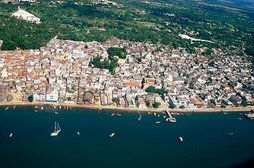
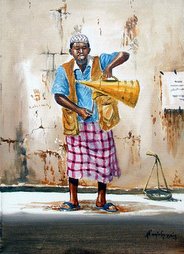

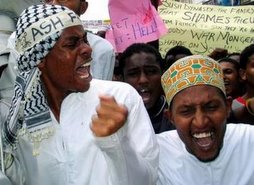
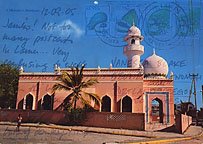
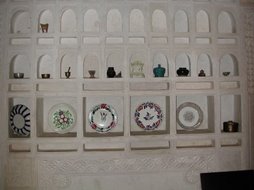

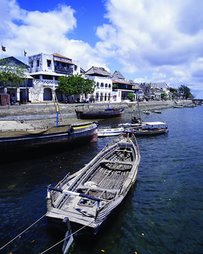





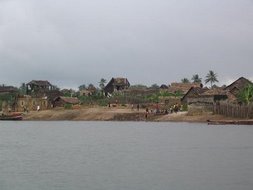
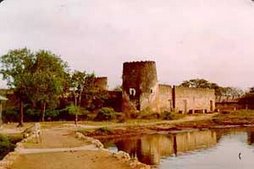

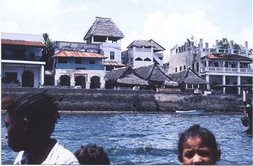

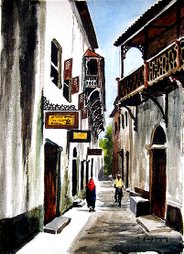
No comments:
Post a Comment